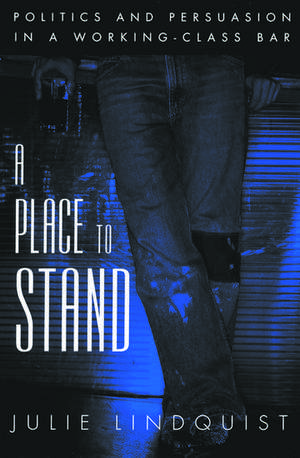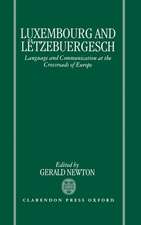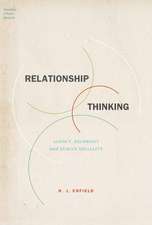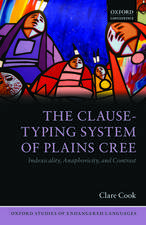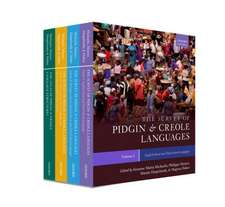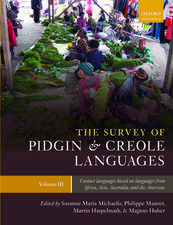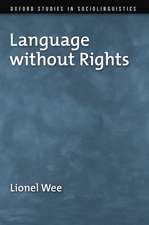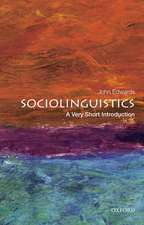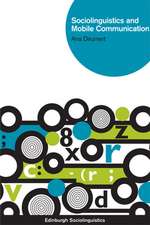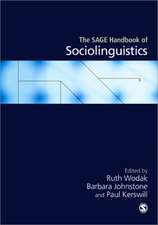A Place to Stand: Politics and Persuasion in a Working-Class Bar: Oxford Studies in Sociolinguistics
Julie Lindquisten Limba Engleză Paperback – 14 feb 2002
Din seria Oxford Studies in Sociolinguistics
- 18%
 Preț: 308.44 lei
Preț: 308.44 lei -
 Preț: 344.68 lei
Preț: 344.68 lei - 19%
 Preț: 645.98 lei
Preț: 645.98 lei - 27%
 Preț: 372.14 lei
Preț: 372.14 lei - 15%
 Preț: 227.19 lei
Preț: 227.19 lei - 16%
 Preț: 250.03 lei
Preț: 250.03 lei - 12%
 Preț: 329.35 lei
Preț: 329.35 lei - 31%
 Preț: 412.02 lei
Preț: 412.02 lei - 10%
 Preț: 247.39 lei
Preț: 247.39 lei - 10%
 Preț: 265.32 lei
Preț: 265.32 lei - 21%
 Preț: 316.67 lei
Preț: 316.67 lei -
 Preț: 317.04 lei
Preț: 317.04 lei - 17%
 Preț: 146.34 lei
Preț: 146.34 lei - 8%
 Preț: 332.58 lei
Preț: 332.58 lei - 31%
 Preț: 873.65 lei
Preț: 873.65 lei - 9%
 Preț: 341.49 lei
Preț: 341.49 lei - 8%
 Preț: 294.85 lei
Preț: 294.85 lei - 22%
 Preț: 368.77 lei
Preț: 368.77 lei -
 Preț: 289.55 lei
Preț: 289.55 lei - 22%
 Preț: 370.44 lei
Preț: 370.44 lei -
 Preț: 320.25 lei
Preț: 320.25 lei - 30%
 Preț: 714.68 lei
Preț: 714.68 lei - 12%
 Preț: 197.27 lei
Preț: 197.27 lei - 14%
 Preț: 184.84 lei
Preț: 184.84 lei - 14%
 Preț: 192.30 lei
Preț: 192.30 lei - 34%
 Preț: 735.32 lei
Preț: 735.32 lei - 19%
 Preț: 342.78 lei
Preț: 342.78 lei - 22%
 Preț: 565.77 lei
Preț: 565.77 lei - 10%
 Preț: 254.19 lei
Preț: 254.19 lei - 31%
 Preț: 949.08 lei
Preț: 949.08 lei - 19%
 Preț: 497.96 lei
Preț: 497.96 lei - 34%
 Preț: 1169.26 lei
Preț: 1169.26 lei - 31%
 Preț: 1158.64 lei
Preț: 1158.64 lei
Preț: 355.31 lei
Preț vechi: 438.11 lei
-19% Nou
Puncte Express: 533
Preț estimativ în valută:
67.99€ • 70.56$ • 56.83£
67.99€ • 70.56$ • 56.83£
Carte tipărită la comandă
Livrare economică 05-11 martie
Preluare comenzi: 021 569.72.76
Specificații
ISBN-13: 9780195140385
ISBN-10: 0195140389
Pagini: 216
Dimensiuni: 169 x 225 x 14 mm
Greutate: 0.31 kg
Editura: Oxford University Press
Colecția OUP USA
Seria Oxford Studies in Sociolinguistics
Locul publicării:New York, United States
ISBN-10: 0195140389
Pagini: 216
Dimensiuni: 169 x 225 x 14 mm
Greutate: 0.31 kg
Editura: Oxford University Press
Colecția OUP USA
Seria Oxford Studies in Sociolinguistics
Locul publicării:New York, United States
